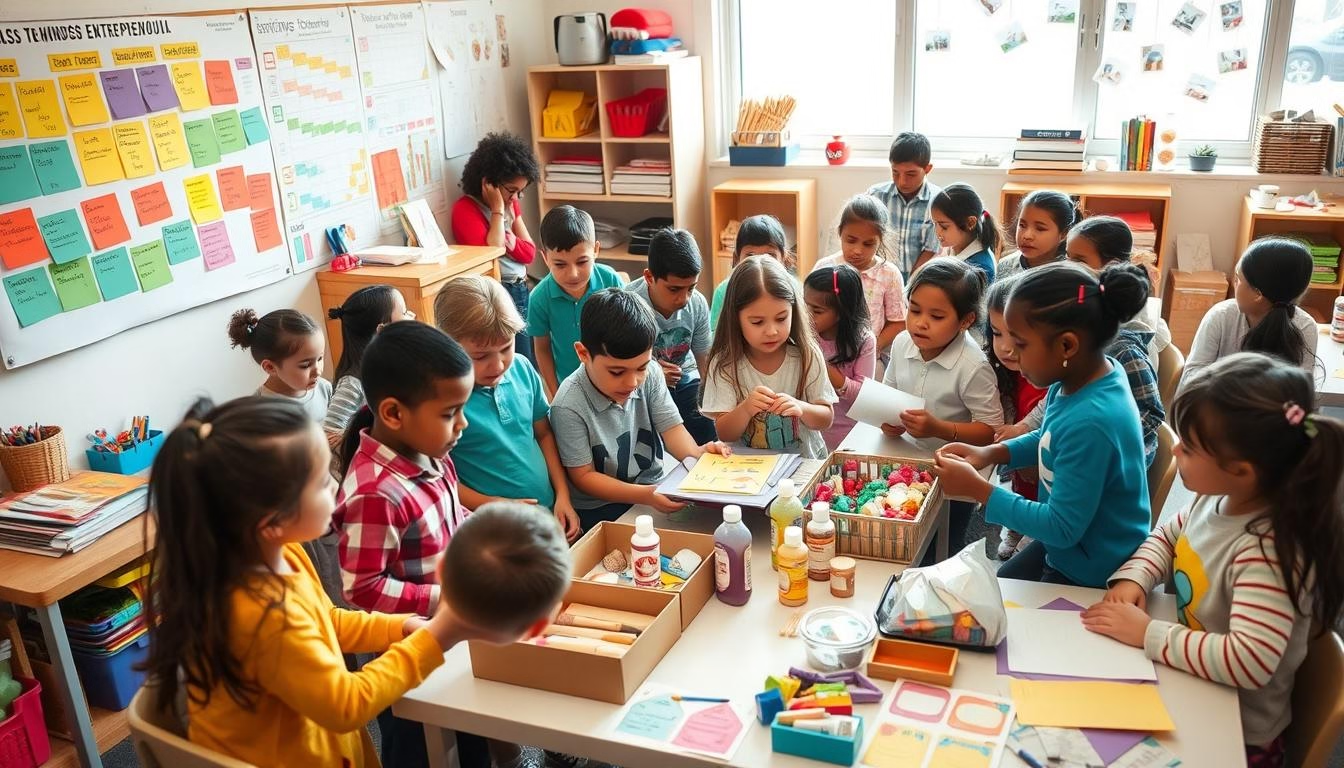Parents play a huge role in shaping their children’s future. This includes how well they do in school, their emotional health, and their social skills. Research by developmental psychologists has found four main parenting styles: authoritarian, authoritative, permissive, and uninvolved. Each style affects a child’s personality, behavior, and future in different ways.
Parenting styles set the stage for a child’s success and happiness. They teach children how to manage their feelings, interact with others, and handle life’s challenges. It’s important for parents to understand these styles to create a supportive environment where their children can grow and succeed.
Key Takeaways
- Parenting styles significantly influence a child’s academic performance, emotional intelligence, and social relationships.
- Authoritative parenting, characterized by high responsiveness and high demandingness, is associated with the most positive outcomes for children.
- Authoritarian and permissive parenting styles can lead to issues like insecurity, low self-esteem, and behavioral problems in children.
- Consistent boundaries, kindness, and resilience in parenting can positively shape a child’s behavior and future.
- Cultural differences and work-life balance challenges can impact the adoption of various parenting approaches.
Understanding the Foundation of Parenting Styles
Research by psychologist Diana Baumrind in the 1960s changed how we see parenting. She found three main styles: authoritarian, authoritative, and permissive. Later, Maccoby and Martin added a fourth style, the uninvolved or neglectful approach.
The Evolution of Parenting Research
Baumrind’s work looked at how parents behave. She studied things like discipline, warmth, communication, and expectations. Her findings showed how these actions affect children’s growth and happiness.
Other studies have built on her work. They’ve looked deeper into parenting and how culture plays a role.
Key Dimensions of Parenting Behavior
The four parenting styles are based on two main things: demandingness (control) and responsiveness (warmth). These shape how parents interact with their kids, set rules, and encourage independence.
Cultural Influences on Parenting Approaches
Parenting styles vary across cultures. For example, what’s seen as strict in the West might be seen as necessary in some Asian or African cultures. Knowing these differences helps parents use the best strategies for their children’s growth.
| Parenting Style | Characteristics | Outcomes for Children |
|---|---|---|
| Authoritarian | High control, low responsiveness | May struggle with social skills, self-esteem, and decision-making |
| Authoritative | High control, high responsiveness | Develop confidence, responsibility, and academic achievement |
| Permissive | Low control, high responsiveness | May exhibit impulsiveness, lack of responsibility, and academic challenges |
| Uninvolved | Low control, low responsiveness | May experience substance use, rebellious behavior, and academic struggles |
Knowing about parenting research and its evolution is key. It helps parents use the right techniques and strategies. This promotes positive growth in children.
The Four Major Parenting Styles Explained
As parents, we shape our children’s future. Our interaction, boundaries, and nurturing impact their well-being and success. Research shows four main parenting styles: authoritarian, authoritative, permissive, and uninvolved.
Authoritarian Parenting: These parents are strict and demand obedience. They use punishment more than explanation. This can make children rebellious, lacking in social skills, and indecisive.
Authoritative Parenting: This style is seen as the best. Authoritative parents set clear rules and are nurturing. Their children grow up confident, responsible, and emotionally smart.
Permissive Parenting: Permissive parents are lenient and avoid conflict. They offer little guidance. This can lead to children being picky, making unhealthy choices, and facing drug abuse risks.
Uninvolved Parenting: Uninvolved parents are distant and provide little support. Their children struggle with emotions, coping, and school.
Each style affects children differently. Authoritative parenting is best. It balances warmth, responsiveness, and clear rules. This leads to better self-esteem, emotional control, and success in school and social life.
“Authoritative parenting is the most recommended parenting style for emotionally stable adults who can handle themselves in social situations and set goals for themselves.”
How Parenting Styles Shape Your Child’s Future
Parenting styles deeply affect a child’s life, influencing their school success, emotional health, and friendships. Studies show how different parenting ways impact a child’s growth over time.
Impact on Academic Performance
Children in authoritative homes do well in school. This is because their parents set high standards but also offer love and support. Kids from these homes feel confident, can solve problems, and work hard.
On the other hand, kids from authoritarian homes might find it hard to make decisions and start projects. Even though they often do well in school, they face challenges.
Effects on Emotional Intelligence
Parenting styles also shape a child’s emotional smarts. Authoritative parents, who talk openly and validate feelings, raise kids who are emotionally strong, empathetic, and can control their emotions.
Permissive parents, who don’t set clear rules, can lead to kids being impulsive and struggling to manage their feelings.
Influence on Social Relationships
Parenting affects a child’s social skills and friendships. Authoritative parents help kids become independent and emotionally supported, leading to better social skills and friendships.
Neglectful parents, who don’t show enough care, can make it hard for kids to trust and form close relationships.
In conclusion, the parenting style greatly influences a child’s school success, emotional health, and social abilities. By understanding different parenting styles, families can make choices that help their child grow and thrive.
Authoritative Parenting: The Gold Standard
Authoritative parenting is seen as the best way to shape a child’s future. It balances high expectations with constant support. This creates a nurturing space that encourages positive behavior and strong parent-child bonds.
Parents who use this method set clear rules and listen to their kids’ needs. They encourage open talks, letting children share their thoughts and feelings. This helps kids learn to make choices and feel responsible.
- Authoritative parenting focuses on warmth, control, and consistent discipline for teaching, not punishment.
- Natural consequences help kids learn by doing, teaching them right from wrong.
- Parents who admit mistakes and solve problems together show their kids the value of teamwork.
Children raised this way often feel better about themselves, do well in school, and have strong social skills. As adults, they tend to lead better and have better mental health.
“Authoritative parenting is the ‘gold standard’ because it combines high expectations with emotional support, fostering independence and self-regulation in children.”
By following authoritative parenting, families can build a strong base. This base helps children grow up to be confident and successful.
The Impact of Strict and Permissive Parenting
Parenting styles deeply affect a child’s growth and future happiness. Authoritative parenting, which mixes structure with warmth, is often seen as the best. But, strict and permissive parenting can also have lasting effects.
Long-term Effects of Authoritarian Approach
Authoritarian parents use harsh discipline and strict rules. This makes children obedient but can harm them. Children from these homes often face anxiety, low self-esteem, and lack motivation.
They might also lie or act out to avoid punishment.
Consequences of Overly Lenient Parenting
Permissive parenting, where parents don’t set limits, brings its own problems. Children from these homes struggle with self-control, school, and forming good relationships. They are more likely to take risks, like using drugs or being sexually active.
Finding the Right Balance
The secret to good parenting is finding a balance. Parents should set clear rules and listen to their children’s feelings. This way, kids grow up confident, independent, and responsible.
“Authoritative parenting, which combines support with clear rules and open communication, is generally effective in fostering independence, self-esteem, and empathy in children.”
Building Emotional Bonds and Trust
Creating strong emotional bonds and trust is key for a child’s growth. Parents need to be responsive, empathetic, and supportive. Listening actively, validating feelings, and showing care are essential for a secure attachment between parent and child.
This foundation helps with self-esteem, social skills, and overall well-being as kids grow up. Research shows that affection from parents, especially early on, greatly impacts a child’s emotional intelligence and happiness.
- Children who get affection from parents often have better self-esteem, do well in school, and have fewer problems.
- Affectionate parenting makes kids happier and less anxious, changing their brain development.
- Skin-to-skin contact, especially with the mother, calms babies, reduces crying, and boosts brain growth.
- Massage and other physical affection strengthen the parent-child bond and lower anxiety in kids.
It’s vital to respect a child’s comfort level with affection, as it changes with age. Building a nurturing environment based on emotional bonds and trust helps kids succeed and thrive.

Creating a Nurturing Environment for Success
Positive parenting techniques are key in shaping a child’s future. Healthy boundaries, independence, and responsibility are crucial. They help create a nurturing space for long-term success.
Setting Healthy Boundaries
Experts say authoritative parenting is the best. It mixes high expectations with warmth and guidance. This helps kids learn self-discipline and proper behavior early on.
Clear rules and expectations give children the structure they need. It helps them thrive and feel secure.
Fostering Independence and Responsibility
Encouraging child development through exploration and decision-making is vital. Letting kids make choices and take on responsibilities is important. It helps them develop critical thinking, problem-solving, and self-confidence.
Supporting Mental Well-being
Promoting positive reinforcement and open communication is key for mental health. Parents should listen to their child’s feelings and offer empathy. This builds trust and nurtures resilience and emotional intelligence.
By finding the right balance, parents can support their children’s growth. This sets them up for a bright future.
Breaking Negative Parenting Patterns
We all want the best for our kids. But, our parenting styles are shaped by our own upbringing. It’s key to break free from harmful patterns to ensure our children’s well-being and success.
Many parents unknowingly pass on negative behaviors from their childhood. Reflecting on our personal histories and identifying these destructive patterns is the first step towards cultivating a more gentle parenting style.
Learning about positive parenting techniques can teach us better ways to communicate and set boundaries. By being self-aware and open to change, we can break the cycle of bad parenting. This creates a nurturing environment for our kids to grow and thrive.
- Implement active listening and validate your child’s feelings
- Use positive reinforcement to encourage desired behaviors
- Establish consistent, age-appropriate discipline methods
- Foster independence and responsibility while providing support
- Prioritize your child’s mental well-being and emotional needs
By adopting a more authoritative parenting style, we help our children develop important skills. This investment in our parenting style today will positively impact their future.
“The greatest gift you can give your child is not material things, but the gift of your time, attention and unconditional love.”

Conclusion
Parenting styles are key in shaping a child’s future. The authoritative style, with high expectations and warmth, often leads to the best results. Yet, every child is different, and parents must tailor their approach to meet their child’s needs.
Understanding the effects of parenting styles is crucial. Building strong emotional bonds and creating a nurturing environment are important. Parents can also break negative patterns to positively influence their child’s growth.
The goal is to find a balance between high standards and empathy. This approach helps develop emotional intelligence and cognitive skills. These are vital for a child’s well-being and success.
Parenting is a journey that requires staying connected to a child’s needs. By being flexible and responsive, parents can help their child reach their full potential. This leads to a future filled with academic success, healthy relationships, and a strong sense of self-worth.





